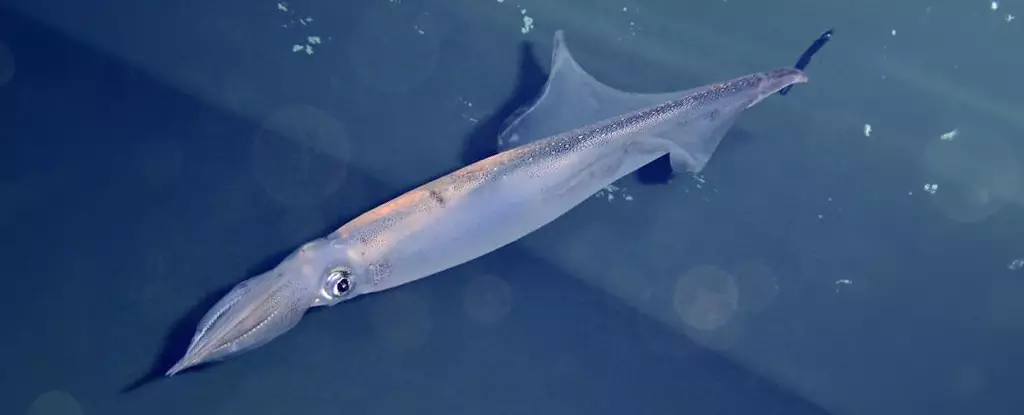Recent research from the University of Tokyo has shed light on the fascinating world of squid mating behaviors. Marine biologist Shota Hosono and his team have discovered that the reproductive tactics of male Japanese spear squid are influenced by the month they hatch. This phenomenon, known as the relative age effect, determines whether the squid will become consorts or sneakers when it comes to mating.
The ‘birthdate hypothesis’ has long been studied in various species, with children born earlier in the year having advantages in certain aspects of life. In the case of the Japanese spear squid, those hatching early in the breeding season have a better chance of becoming consorts – larger males that compete with rivals for mating opportunities. On the other hand, squid hatching later in the season tend to be smaller and adopt the sneaky approach of depositing sperm covertly.
This research is groundbreaking as it is the first time the ‘birthdate hypothesis’ has been observed in aquatic invertebrates. The study of 201 male squids and 68 mature females revealed that the hatching date plays a significant role in shaping the squid’s entire life trajectory. Even when early-hatched males did not grow as expected, they did not switch tactics but instead postponed mating until they were ready to become consorts.
Contrary to common belief, the mating tactics of male Japanese spear squids are not solely inherited from their paternal line. Females store sperm from both consort and sneaker males, utilizing a mixture of sperm sources for fertilization. This genetic variation stemming from alternative reproductive tactics can impact the mating behaviors of various animals, highlighting the complexity of evolutionary processes.
Physical, biological, and environmental factors at birth play a crucial role in determining male mating tactics in squid. The availability of food, water temperature, and other environmental conditions during the hatching season can significantly impact the squid’s growth trajectory and subsequent mating behaviors. Extreme events like marine heatwaves can have lasting effects on the squid population, affecting both their mature body size and commercial catch rates.
While the study revealed some intriguing findings, further research is needed to fully understand how environmental factors influence squid mating behaviors. Despite growing up during different seasons, consorts and sneakers showed similar growth rates early in life, indicating a more complex relationship between environmental conditions and mating tactics. Future studies may uncover additional insights into the intricate world of squid reproduction.
The research conducted by Shota Hosono and his colleagues has provided valuable insights into the influence of birthdate on squid mating behaviors. By studying the Japanese spear squid, they have expanded our understanding of the ‘birthdate hypothesis’ and its impact on evolutionary processes in aquatic invertebrates. This groundbreaking research opens up new avenues for exploring the complexities of mating tactics and reproductive strategies in the animal kingdom.



Leave a Reply